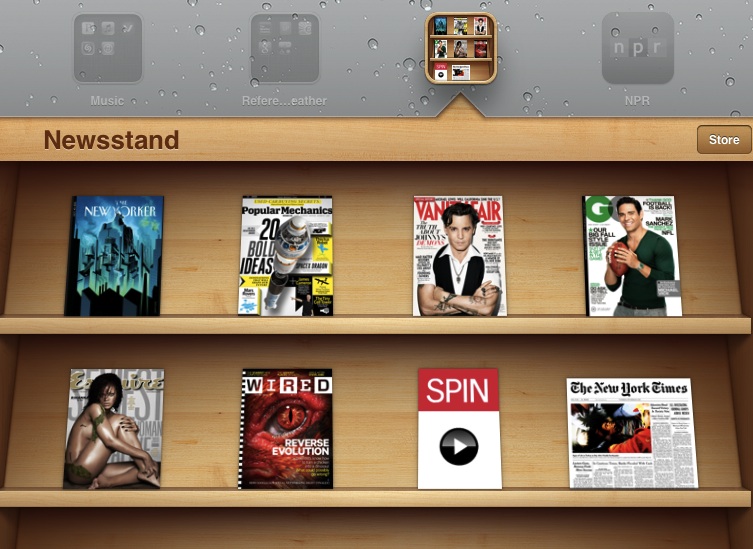Apple is mulling over the decision to lower the 70/30 revenue system for app purchases and in-app micro transactions. The company is currently battling a number of alternative ecosystems such as Google Play and Amazon. If Apple were to lower its percentage it takes from purchases, it may make selling e-books, newspapers and magazines much more viable.
The current word on the street is that Apple is planning on offering publishers a better revenue system in order to make the Newsstand more viable. Publishers operate on razor thin margins and lowering the cut Apple takes for each subscription taken out, would be more appealing.
Apple has already lowered its fee system for Apple TV. They only take a 15% cut, instead of the normal 30%. This is primarily why so many new apps have been pushed out lately, such as HBO Now.
The Apple Newsstand as lost its sheen and many companies are not as bullish on the platform as when it first launched. In 2012, John Gruber said that Newsstand is a place where apps go to be forgotten. Today the Newsstand app is much worse. The folder-like design in iOS 5 and iOS 6 has been replaced with an opaque app icon. The end result is so horrible that it’s hard to avoid thinking it was done maliciously: if someone was tasked with hiding away a set of unwanted apps, they would be likely to come back with a design that was something very much like the iOS 8 Newsstand.
In 2014 Apple paid out $10 billion dollars in royalties from people downloading paid apps and making in-app payments. The one industry not getting anything are companies such as Amazon, Barnes and Noble, Kobo and Google. Rather than pay Apple as high percentage of each e-book purchase, they aren’t participating in likely the world’s most lucrative ecosystem.
If Apple does lower its revenue system to 90/10 or even 95/5 it might be the kick in the pants the publishing industry needs in order to sell e-books and still make a profit. It would also be more appealing to companies to give the Newsstand a second look.
Michael Kozlowski is the editor-in-chief at Good e-Reader and has written about audiobooks and e-readers for the past fifteen years. Newspapers and websites such as the CBC, CNET, Engadget, Huffington Post and the New York Times have picked up his articles. He Lives in Vancouver, British Columbia, Canada.

